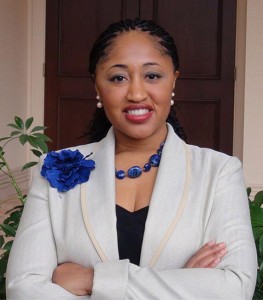 Community Matters is a biweekly opinion column. The views expressed are solely the author’s.
Community Matters is a biweekly opinion column. The views expressed are solely the author’s.
It’s been more than two weeks since we began our stay at home order in Virginia due to COVID-19. In that time, testing has increased which has provided a clearer picture of the pandemic.
Unfortunately, it’s become more common to learn about relatives, friends and others in our lives who have succumbed to COVID-19 related illnesses.
Grocery stores, one of the few places where we can travel, are increasingly seen as the front lines of the pandemic along with hospitals. Masks are a common sight in public and are highly encouraged, especially when at the grocery store.
On one hand while some religious leaders are refusing to obey social distancing orders, we have become more accustomed to seeing the majority of church services, town hall meetings, news broadcasts, and late-night talk shows either with the hosts/participants practicing social distancing in the same studio and/or broadcasting from their homes.
As of April 13, we are seeing the light at the end of the tunnel. Deaths are not as high as originally projected, and there is more serious talk of rapid testing and vaccines.
Studies show that Arlingtonians are working from home, which means that we may be in a better position to bounce back economically. There is a varied reaction to those of us who are diligently reporting and venting about others who are not practicing social distancing or wearing masks. A popular solution gaining momentum is closing off specific streets to cars for pedestrians. When there were reports of schools running out of free meals before spring break, there was a swift community response in the form of the new Cooperative for a Hunger Free Arlington (CHFA)
It’s easy to criticize isolated responses during a crisis but I urge Arlingtonians to focus on the processes and institutions, both strong and weak, that got us here. In a testament to years of advocacy and education by organizations like the League of Women Voters, some of our democratic institutions including elections are evolving to include an emphasis on voting by mail. Election Day is now a holiday in Virginia and the primary and caucus dates are postponed.
Yet, it’s an outrage that we haven’t done more as a community in terms of the systemic inequalities which cause health disparities. Surgeon General Jerome Adams recently received criticism for his remarks targeted toward blacks which seemingly focuses on their unhealthy lifestyles for the disproportionate number COVID-19 deaths, and for using language in his critique (grandaddy, Big Momma) which was seen as condescending by some.
I asked several African-Americans for their opinions, and as expected their perspectives ranged from disgust for the Surgeon General’s lack of acknowledgment for the systemic racial inequalities in the United States to frustration about the early rumors in the black community that blacks were immune from COVID-19.
According to an April 9 WTOP story “in Virginia, positive cases in which race was recorded as white, black or other, 506 cases involved blacks, or 30.4%. Census data says 19.9% of Virginia’s population is black. Whites make up 917 of the state’s cases — 55%.” Virginia is not immune to the inequity.
As we approach the other side of the curve, it’s the perfect time to ramp up our advocacy around the unequal systems which keep some of us behind – whether its access to quality health care, e-learning, healthy meals for our students or safe and affordable housing for families. These aren’t new or easy challenges, yet they have been exacerbated by the pandemic, and will likely outlast our memories of the early days of COVID-19.
History will judge us kindly if we allow the pandemic to shine a light on our inequalities and fight even harder for an equitable Arlington.
Krysta Jones has lived in Arlington since 2004 and is active in local politics and civic life. This column is in no way associated with or represents any person, government, organization or body — except Krysta herself.

